#Henry Irving
Text
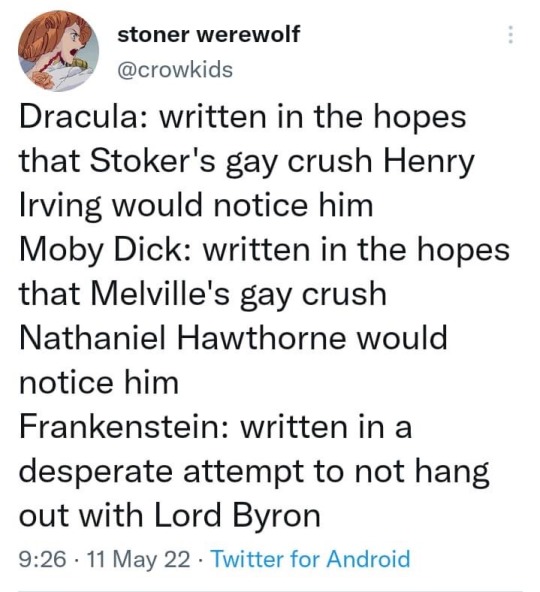
#Bram Stoker#Dracula#Henry Irving#Herman Melville#Moby Dick#Nathaniel Hawthorne#Mary Shelley#Frankenstein#Lord Byron
23K notes
·
View notes
Text

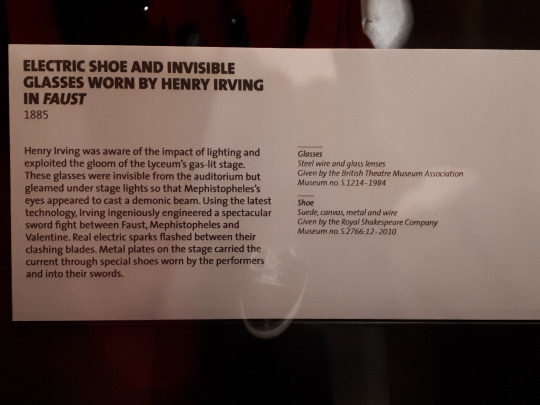
Just in case you needed any more reminders of what crazy geniuses Henry Irving and the folks at the Lyceum Theatre were.
1K notes
·
View notes
Note
Hey there, so we got The Scene today, and do you have any thoughts on Dracula's interest in/designs on Jonathan?
The "The man belongs to me!" scene is one of those moments in Dracula that is just neutron star dense with possible meaning, and it is obviously an episode that was on Stoker's mind for a while, given that outlines of it appeared in his notes seven years prior to Dracula's publication. As so much of tumblr instantly observed, it's easy to read the moment as one of homoerotic desire, and this a reading I tend to agree has merit. Stoker definitely seemed to have some deep apprehensions about his sexuality/gender even if you don't believe he was queer (and I tend to believe he probably was queer), and I think that having a strong, commanding man protect one of your authorial inserts from sexually aggressive, anti-maternal vampire women definitely speaks to those apprehensions. The fact that Jonathan subsequently faints and needs to be carried to his rooms is a moment that I feel really underscores how much of Dracula's first section is an inversion of our expectations for Gothic heroes and heroines; this is exactly the sort of moment that one would typically see play out with a frightened young woman in a white nightdress doing the swooning in earlier gothic literature, and it's fascinating to have a young male professional suddenly cast in that role.
In addition to this, while I don't tend to favor readings of Dracula that position him as completely based on Henry Irving, Irving was noted for having a commanding, somewhat tyrannical presence, he does share quite a number of features with the Count, and he was definitely a focal point of much of Bram's personal and professional life. If you read Stoker's Personal Reminiscences of Henry Irving, the way he describes Irving's influence on him feels almost mesmeric in its intensity. While we can't know the degree to which Stoker was or was not personally smitten with his employer, I think that it is not too far fetched to imagine that some aspect of his relationship to Irving left an impression on Dracula.
Lastly, I am personally of the belief that Dracula was very much influenced by the W. G. Wills stage adaptation of Faust, which was a massive hit in the 1870s and starred Irving as Mephistopheles. Some of the aspects of Mephistopheles that were really played up in that production were his aversion to crucifixes and his problems crossing thresholds, and there's a deleted fragment in the typescript that very much compares the Count to this version of the character. As such, I think one can also read "This man belongs to me" in terms of a demonic/devil-like entity laying claim to his victim's soul.
Overall, I personally read this instant as Dracula expressing a genuine desire for a man who represents the life and animation that he seeks to reclaim through his attempt to relocate to England, but I also think that there is a possessiveness that is meant to be read as otherworldly and Satanic in nature: that this is a claim that manages to intermingle Dracula's humanity and his inhumanity. I also think that it very much touches on a desire for/fear of men desiring men that Stoker could not really write about outside of a supernatural setting.
#Bram Stoker#Dracula#Dracula Daily#The Count#Jonathan Harker#Henry Irving#W. G. Wills#Faust#liveblogging dracula 2022
2K notes
·
View notes
Text

I'd too use my energy-depleting boss as my book villain. I can't believe Renfield (2023) is secretly about them.
But it was likely easier for exploitation to happen given this is between a British boss and a newly immigrated Irish man.
#I feel this except there's no homoerotic tension between us on top of it RIP Abraham#Apparently Irving was also against Ireland's Home Rule#and they fought over that too#alexa play toxic by britney#bram stoker#henry irving#historical context#dracula daily
69 notes
·
View notes
Text
Did u know that while traveling with his boss Henry Irving in America, Stoker met William McKinley and then Roosevelt both at the White House and also Buffalo Bill and that he was a huge Ameriboo
37 notes
·
View notes
Photo










めいぷる@FEODMIHデジタル頒布開始@maple_LuwenWS
#Empire of Dirt#Yu Miaoyi#Consort Yu#Anastasia#Murasaki Shikibu#Henry Irving#Liu Bang#Constantine#Tachie#fate#Official art
441 notes
·
View notes
Text
I keep reading about Bram Stoker's probable crush on Henry Irving, so I wanted to see what the guy actually looked like.
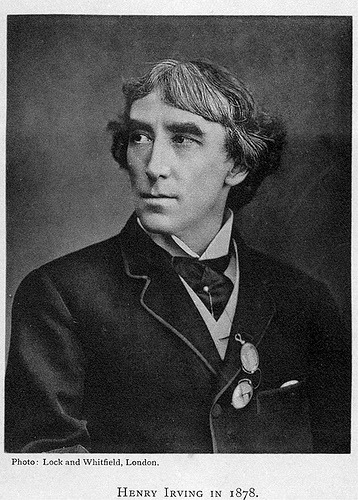
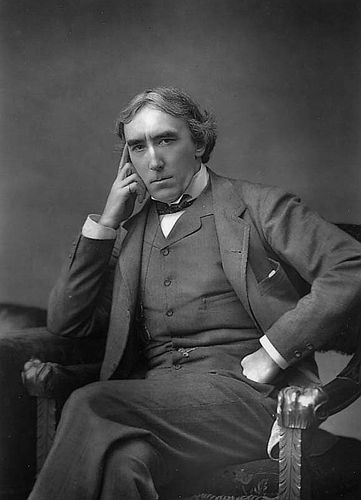
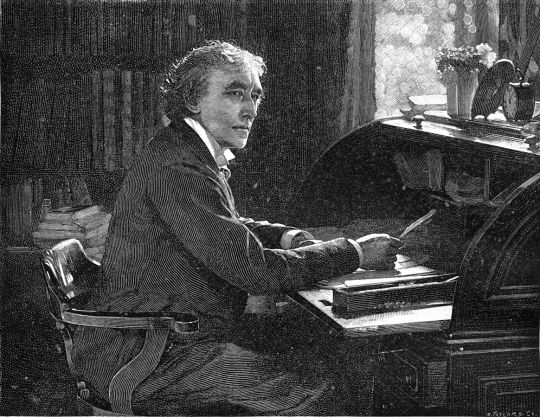
On the left, Henry Irving in 1878 (around the time he first met Stoker), on the right, in the late 1880s, and at the bottom in 1892.
You know, I think I get it.
(And would it be reasonable to describe him as having a strong jaw and a good forehead?)
49 notes
·
View notes
Photo
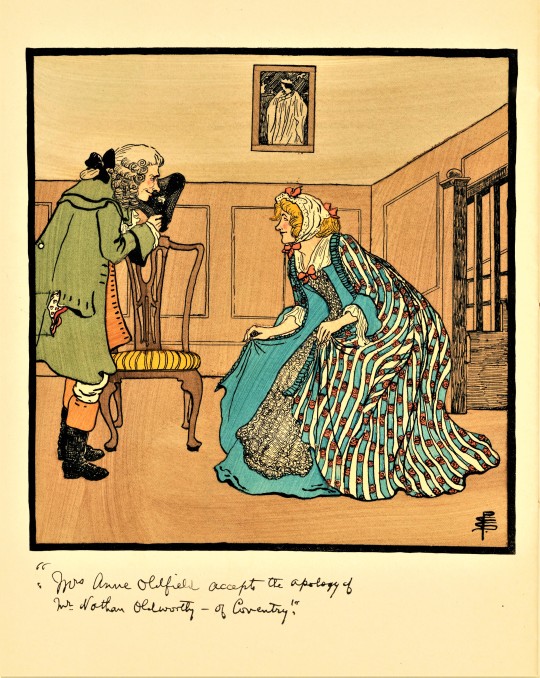





Milestone Monday
On this day, February 27 in 1847, heralded English actress Ellen Terry was born in Coventry, England, the third surviving child born into a theatrical family. Terry began performing as a child, and in 1878 she joined Henry Irving's company as his leading lady. For more than the next twenty years she was considered Britain’s leading actress. Irving and Terry had several highly successful tours in Britain and America. Terry made her American debut in 1883 followed by seven separate tours, including in Milwaukee on her sixth tour, where she played in The Merchant of Venice, Nance Oldfield, and The Bells, May 6-8, 1900 at the Davidson Theatre. In 1925, three years before her death at 81, she was appointed Dame Grand Cross of the Order of the British Empire by King George V, only the second actress to be created a dame for her professional achievements.
These images by British artist and illustrator Pamela Colman Smith are from Sir Henry Irving and Miss Ellen Terry, in Robespierre, Merchant of Venice, The Bells, Nance Oldfield, The Amber Heart, Waterloo, etc., published in New York by Doubleday & McClure Co. in 1899. The text is by Bram Stoker, the renowned author of Dracula. During his lifetime, however, he was better known as the personal assistant of Henry Irving and business manager of the Lyceum Theatre, which Irving owned.
View more Milestone Monday posts.
#Milestone Monday#milestones#birthdays#Ellen Terry#Henry Irving#actresses#English actress#Dame Grand Cross#Pamela Colman Smith#illustrations#Bram Stoker#Doubleday & McClure Co.#Lyceum Theatre
23 notes
·
View notes
Text
Something in the Blood readthrough
David J. Skal actually talk about Bram fucking Stoker in his biography of Bram Stoker for a change challenge
No, seriously, he gets distracted and starts talking about some randos ALL. THE. TIME. And it just keeps getting more and more grating. Why is there pages and pages about some actress who was in a play of his buddy who also gets pages and pages written here about him, and then within this actress' bio there is also bio of another actress who knew her? Why do I need to know about Willie Wilde's marriages? I get why there is so much of Henry Irving and Walt Whitman and even Oscar Wilde here (though I heard he eats like half of the book) but William fucking Wilde???
It looks like Skal would rather write about Oscar Wilde than Bram Stoker. And from everything I read from him and about him, Stoker does seem like a very bland person whille Wilde is... not. But why write Stoker's bio then? And Skal's book IS interesting, and his analysis of Stoker IS interesting... but he's just not doing it half of the time.
#bram stoker#david j. skal#something in the blood#oscar wilde#william wilde#walt whitman#henry irving#reviews#my posts#dracula
2 notes
·
View notes
Text
the article is oddly huff huff about theories of perturbing sexuality in Dracula, which I guess fair enough considering the absolute trips that especially psychoanalytical scholarship has produced over this novel (but I can also tell this article goes a little too much in the other direction and has vibes in the way it goes about it) — but that excluded, this is a fairly interesting summary on the relations between Stoker and Henry Irving and what scholarship has done with them. (X)

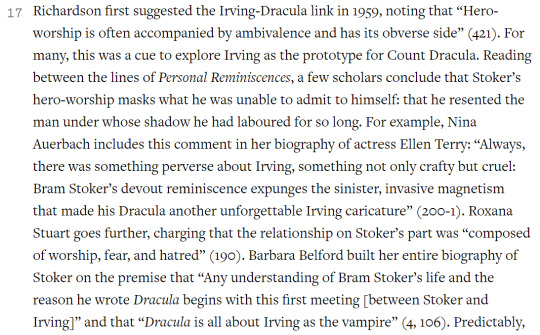
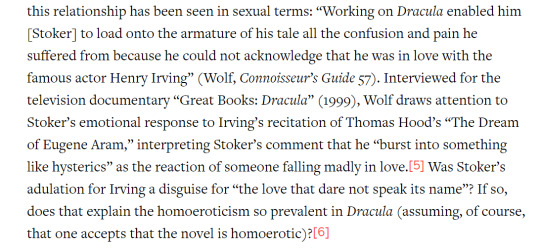
51 notes
·
View notes
Text
Vampyre Man
I was going to start with the 1978 Mill on the Floss as my first Anton Lesser entry, but I've been poking around BBC Sounds because I have a lot of Christmas presents to make
SO
here is a Drama currently available via Sounds called Vampyre Man by Joseph O'Conner, with Darragh Kelly as Bram Stoker, and Anton Lesser as Henry Irving.
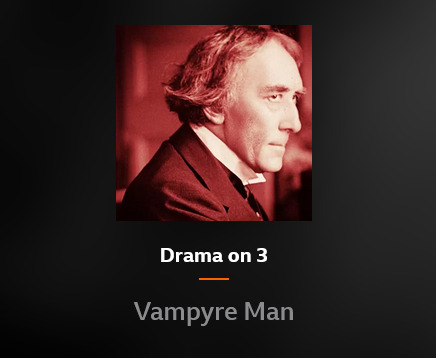
Vampyre Man tells (a slightly fictionalised) story of the relationship between Stoker (yeah, the Dracula guy) and Irving (Victorian era actor-manager, and first actor ever to be awarded a knighthood)
Stoker was Irving's business manager and personal assistant at the Lyceum theatre, and while in this role, he began writing Dracula.
Stoker's relationship with Irving has been described as "the most important love relationship of his adult life", and most people reckon that the character of Dracula is strongly based on Irving himself.
Obviously if you are casting one of your closest friends as a compelling, hypnotising, manipulative and terrifying supernatural creature that sucks the life from others in your novel, you may have some things you are working through at the time...
Anyway, I fucking loved this. I knew nothing about Irving or Ellen Terry, or even Stoker's work for the theatre before listening, and now I want to go and read a few biographies on all of them. The drama itself doesn't claim to be completely accurate, and there's a few liberties taken (I don't think Stoker was with Irving when he died*, for example), but everything in this feels like it should have happened, and its a damn good story.
Most importantly, Anton Lesser seems to be having the time of his life playing Irving: I think his radio work is some of his best, and this is great part for him- malicious, vulnerable, earnest, passionate: it's all there, plus a pretty good Irish accent now and again.
Should I listen to it: I mean, I'm not ur mum, but I really really liked this, it's funny, it's touching, it's got a little bit of history in it, and it's about Dracula a bit too, and we all know how much we like getting letters from our friend Jonathan.
(*Spoilers, I guess, that everybody in this story is now dead, what with it being set in the 1800s)
13 notes
·
View notes
Note
My I ask what it is about the lyceum theatre that makes you want people to get into it 👀
Okay! So despite what we know him for today, Bram Stoker was not actually best known as an author of horror novels for a long time. Being an author was not even his day job for most of his life (and also a of the novels he did write on the side were soapy romances). Bram Stoker was--as the one post I reblogged mentioned--superstar actor Henry Irving's manager and almost all of his working life centered around the Lyceum Theatre and the people associated with it.
I don't think that one needs to know about Bram Stoker's life in the theater in order to appreciate his novels, but there are so many things that make an awful lot more sense when you have a snapshot of his life as a theater worker. Irving resembling Dracula in appearance (and possibly temperament) is something a lot of scholars and annotators and biographers have commented on. The Lyceum also put on a blockbuster, SFX laden production of Faust in which Mephistopheles has a lot of very theatrical issues with thresholds and crosses. Shakespeare comes up an awful lot in Dracula, and there are some indications that material was cut from the book riffing on The Flying Dutchman, which doubtlessly would have connected to Stoker's fascination with an adaptation of the opera called Vanderdecken, which Irving starred in. According to Stoker's son, Noel, Jonathan Harker got his name from his father just walking up to scene designer Joseph Harker and saying "I've taken your surname for one of my characters – hope you don't mind." There's an endless amount of stuff one can come upon when you look to Stoker's professional life outside of writing vampire novels.
Also, just... a lot of stories about him and the Lyceum crew are just really adorable. Leading Lady Ellen Terry's nickname for him was "Mama" and I will never get over that.
So yeah, I hope if people want to delve even deeper into Dracula beyond the text itself that they look into Bram's life as a professional theater nerd and the theater with which he was associated.
327 notes
·
View notes
Text
Dracula Fun Fact
There’s evidence that Stoker baised Dracula, at least in terms of apperance, on his friend actor Henry Irving (who he may have been in denial about being in love with due to internalised homophobia, but that’s a discussion for another day). What’s fun about this is that as a big time actor there are actually a good amount of photographs and paintings of this guy, with the added bonus that he is in historical costume in most of them for his plays. Why is this super fun? Well it estntally means we have a load of historical paintings and photographs that perfectly capture what Stoker thought Dracula looked like, so we basically have book acurate portraits of Count Dracula.
9 notes
·
View notes
Text

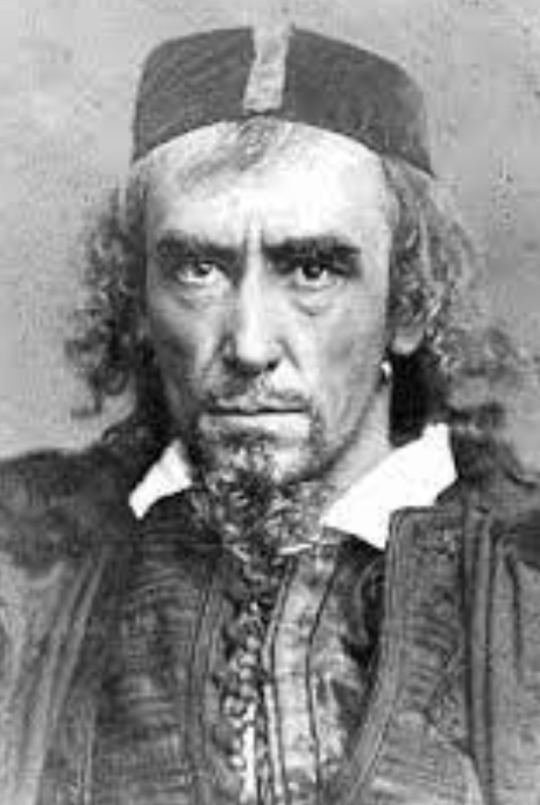
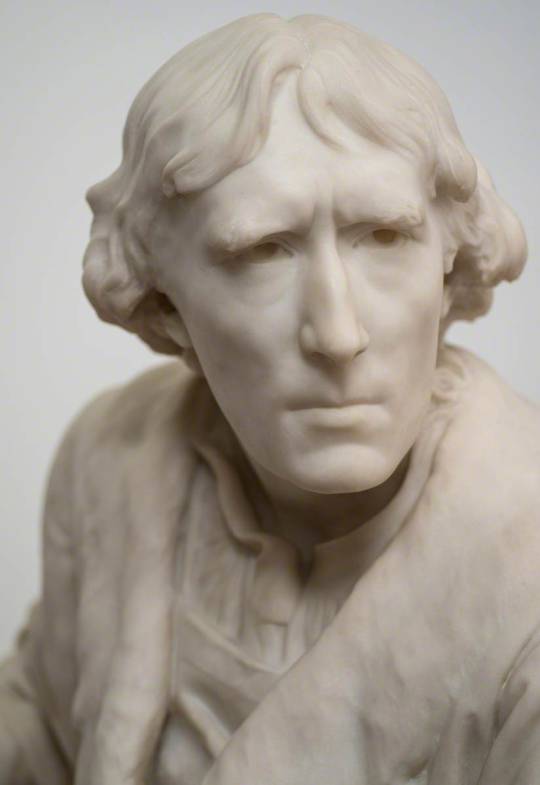
Since everyone is talking about Dracula nowadays, I thought I'd share some pictures of the man thought to have inspired the character of Dracula: the Shakespearean actor Sir Henry Irving, for whom Bram Stoker worked as manager.
Here are photos of Irving as himself and as Shylock, and a statue of him as Hamlet.
Just look at that intense, hypnotic stare! I can see Dracula in him, very easily.
27 notes
·
View notes
Text
Vampires explained - the history of this horror!
Vampires have a long history from ancient Greece through medieval Europe to several, notably Irish, Gothic horror novelists!
In a new series of videos, I’m going to be looking at the history of horror. And I’m starting with vampires. The origins of these blood suckers goes all the way back to ancient Greece and the myth of the Lamia. Interestingly a female vampire. Men, it would seem, do not have a monopoly on sinking their fangs into the living and draining their blood!
Vampire history and real-life…

View On WordPress
#blood#Bram Stoker#dhampir#Dracula#Henry Irving#horror#horror movies#Lamia#Lord Byron#moroi#strigoi#vampire#vampires#Wharram Percy
3 notes
·
View notes
Link
The silent room, the heavy creeping shade,
The dead that travel fast, the opening door,
The murdered brother rising through the floor,
The ghost’s white fingers on thy shoulders laid,
And then the lonely duel in the glade,
The broken swords, the stifled scream, the gore,
Thy grand revengeful eyes when all is o’er,—
These things are well enough,—but thou wert made
For more august creation! frenzied Lear
Should at thy bidding wander on the heath
With the shrill fool to mock him, Romeo
For thee should lure his love, and desperate fear
Pluck Richard’s recreant dagger from its sheath—
Thou trumpet set for Shakespeare’s lips to blow!
#shakespeare#william shakespeare#poems#poetry#fabien dei franchi#oscar wilde#henry irving#wilde#lear#king lear#romeo#the dead travel fast
4 notes
·
View notes